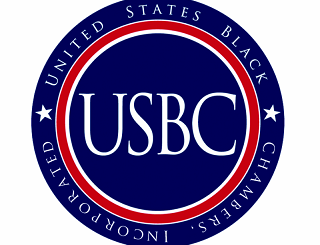
The way you word the question is critical.
By Gary Shumaker
If someone has led you to believe that an agency will give you a government contract because you’re a minority, you’re sadly mistaken. You also have to be better than the other companies that the government could give the contract to.
This is not to say that you have to compete head-to-head against every other company in the business. There are programs that will limit the competition that you need to best, but you will still need to be better at what you do than the competition.
The competition for some contracts is limited to companies that have been accepted into the Small Business Administration (SBA) 8(a) business development program. Only proposals for companies that have been accepted into the program will be considered.
Getting accepted into the program is no trivial feat. And, it’s not a minority-only program; it’s focused on companies that are owned by socially and economically disadvantaged individuals.
Companies need to be accepted prior to submitting a proposal for an 8(a) set-aside contract, and it’s a months-long process at the minimum.
Requirements for admission include the following:
• The business must be majority-owned by one or more individuals.
• The owner must be an American citizen, by birth or naturalization.
• The business must be majority-owned and controlled/managed by one or more socially and economically disadvantaged individuals.
• The individuals controlling and managing the firm on a full-time basis must meet the requirement for social and economic disadvantage.
• The business must be small.
• The business must demonstrate potential for success.
• The principals must show good character.
Applicants must prove social disadvantage, but some people are presumed to be disadvantaged. These include African-Americans, Hispanic Americans, Native Americans, Asian Pacific Americans, and Subcontinent Asian American. This is not an African-American thing; it’s a socially disadvantaged thing.
A socially disadvantaged applicant must also prove economic disadvantage. To do this, he must provide a narrative statement of economic disadvantage, and personal financial information including tax returns and other documentation. In other words, an applicant can’t be too rich. Again, it’s not about your ethnicity; nobody who is socially disadvantaged can be too rich and get accepted into the program.
Gaining admission to the program can provide several different types of advantages to a company that is just starting out in government contracting:
• Every government agency “sets aside” some of its procurements exclusively for 8(a) companies. Proposals from non-8(a) companies are not accepted. This limits competition to similarly situated companies.
• A government agency may do a sole source procurement with an 8(a) company. No competition. The agency just decides what company it wants to contract with, and awards the contract. No kidding.
• Gaining entry into the 8(a) program gives the company eligibility for another program: the SBA Mentor-Protégé program. Getting Mentor-Protégé relationship approved is a another lengthy application process, but once it’s done, the 8(a) company leverages the relationship to learn from its mentor, form joint ventures with its mentor to bid for 8(a) opportunities, and potentially gain financial investment by its mentor in the 8(a) company.
It’s probably worth talking for a minute about what the 8(a) program will NOT do for a company. Once a company gains 8(a) status:
• Nobody will come knocking at the company door to award a contract out of the blue.
• You won’t win any contracts that you don’t work for.
• If you can’t tell prospective customers about how good you are at what you do, you probably won’t win.
• If you don’t have any references that potential customers can talk to about your past performance, you probably won’t win (although there are exceptions to this rule).
• If you don’t submit a proposal, you won’t get the work. Even for a sole source opportunity. You’ve got to give your customer something that he can point to and say “This is why I gave them the work.”
So will being an African-American help you win government contracts? If you mean, will it give you an advantage when you’re starting up, yeah, it’s one factor. But, it’s not the most important factor; you’ve got to be good at what you do. But if you go through the process to gain 8(a) status, it can limit the competition that you need to beat.
Go for it!

Gary E. Shumaker is the founder and senior consultant for Gary E. Shumaker, Inc., a wholly owned subsidiary of C2 Solutions Group, Inc. He has spent 20 years inside government and nearly 25 years in the industry as an executive, business developer, chief operating officer and chief executive officer for multiple small companies in the federal contracting market. He helps small companies develop the intellectual infrastructure to succeed in the federal marketplace. For more information, visit garyeshumaker.com or email gary.shumaker@c2sginc.com.




